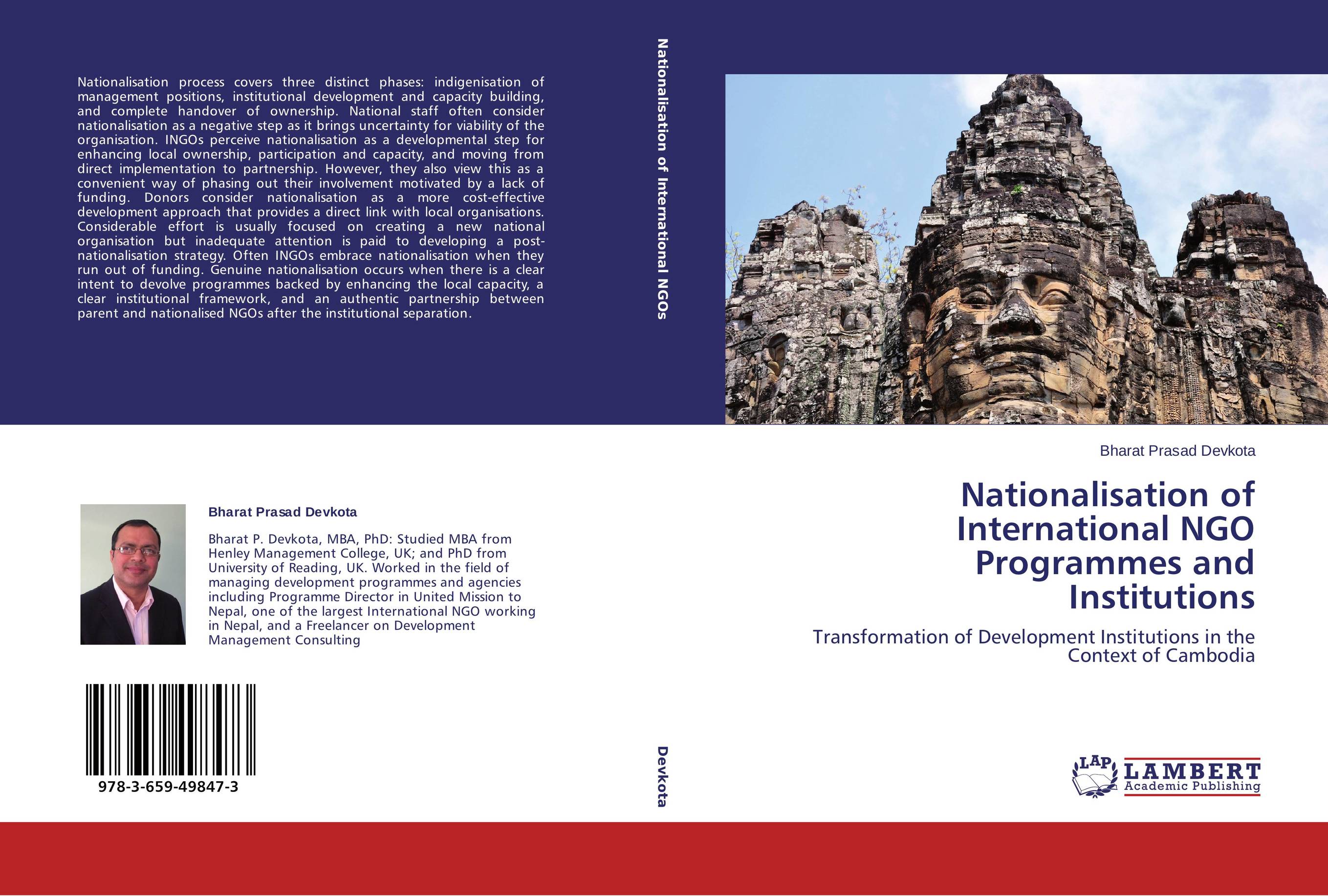| Поиск по каталогу |
|
(строгое соответствие)
|
- Профессиональная
- Научно-популярная
- Художественная
- Публицистика
- Детская
- Искусство
- Хобби, семья, дом
- Спорт
- Путеводители
- Блокноты, тетради, открытки
Nationalisation of International NGO Programmes and Institutions. Transformation of Development Institutions in the Context of Cambodia

В наличии
| Местонахождение: Алматы | Состояние экземпляра: новый |

Бумажная
версия
версия
Автор: Bharat Prasad Devkota
ISBN: 9783659498473
Год издания: 2014
Формат книги: 60×90/16 (145×215 мм)
Количество страниц: 516
Издательство: LAP LAMBERT Academic Publishing
Цена: 70865 тг
Положить в корзину
Позиции в рубрикаторе
Сферы деятельности:Код товара: 130388
| Способы доставки в город Алматы * комплектация (срок до отгрузки) не более 2 рабочих дней |
| Самовывоз из города Алматы (пункты самовывоза партнёра CDEK) |
| Курьерская доставка CDEK из города Москва |
| Доставка Почтой России из города Москва |
Аннотация: Nationalisation process covers three distinct phases: indigenisation of management positions, institutional development and capacity building, and complete handover of ownership. National staff often consider nationalisation as a negative step as it brings uncertainty for viability of the organisation. INGOs perceive nationalisation as a developmental step for enhancing local ownership, participation and capacity, and moving from direct implementation to partnership. However, they also view this as a convenient way of phasing out their involvement motivated by a lack of funding. Donors consider nationalisation as a more cost-effective development approach that provides a direct link with local organisations. Considerable effort is usually focused on creating a new national organisation but inadequate attention is paid to developing a post-nationalisation strategy. Often INGOs embrace nationalisation when they run out of funding. Genuine nationalisation occurs when there is a clear intent to devolve programmes backed by enhancing the local capacity, a clear institutional framework, and an authentic partnership between parent and nationalised NGOs after the institutional separation.
Ключевые слова: transition, change management, leadership, Partnership, Capacity Building, international development, Empowerment, Ownership, localisation, NGO Management, International NGOs, Exit Strategy, Nationalisation, Programme Handover



